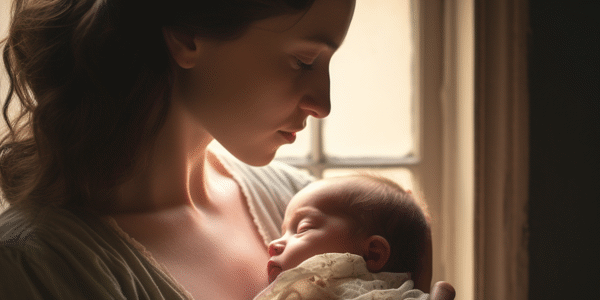Maternal Mental Health
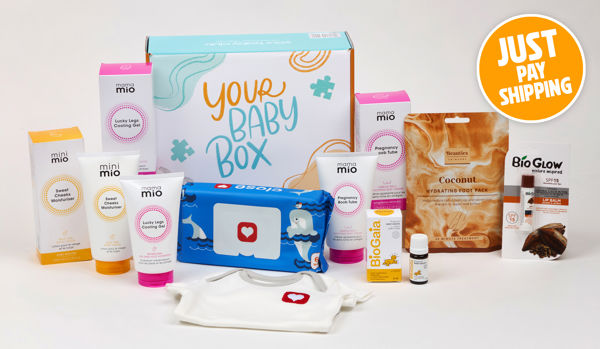
Get started on your parenting journey with feeding essentials, changing must-haves and other handpicked goodies from leading baby brands.

Get started on your parenting journey with feeding essentials, changing must-haves and other handpicked goodies from leading baby brands.

Becoming a parent is an incredible journey, but it also comes with its fair share of challenges, especially when it comes to finding time to focus on your own mental health.
It's easy to get caught up in the whirlwind of nappy changes, sleepless nights, and new routines, but your mental wellbeing is just as important as everything else. Taking small steps to care for yourself can make a big difference, helping you feel more balanced and prepared to handle the ups and downs of parenthood.Taking care of your mental health doesn’t always have to involve big, complicated changes if that isn’t what’s needed. In fact, small steps can often have a big impact. Try carving out little moments during your day, whether it’s a few minutes to enjoy your favourite snack or a quick walk in the fresh air. Being mindful of getting as much sleep as possible (we know it’s often easier said than done with a baby!) and taking short naps when your baby sleeps can also make a world of difference.
It’s also about being kind to yourself. You’re learning and growing as a parent, and it’s okay if everything isn’t perfect. Don’t be afraid to ask for help if you need it, and try not to compare yourself to others. Every parent’s journey is different, and taking small steps to look after yourself can make a big difference in how you feel. You’ve got this!
If you're still preparing for birth and wondering how you can best consider yourself emotionally, download our emotional safety plan for birth here.
Taking time for yourself can be tough as a new or expecting parent, but even small activities can make a big difference in how you feel. Gentle movement, like a walk in the park or some relaxing prenatal yoga, can work wonders for clearing your mind and lifting your mood. Even just 10 minutes of "me time" with a cup of tea and a good book or some mindful breathing can help you reset when things feel overwhelming.
Socialising with others is also a great way to boost your mental health. Joining a baby group or a prenatal class is a fab way to connect with others who are going through the same thing, helping to ease any feelings of isolation. Sharing your experiences, laughing, or even having a little vent can take a weight off your shoulders. Remember, you’re not alone in anything that you go through!
While life with a baby or while pregnant can feel unpredictable, creating a gentle routine can bring a sense of calm and structure to your day. It doesn’t have to be rigid, but setting up a few consistent habits—like getting up at the same time each morning, fitting in a daily walk, or having a set bedtime routine for your little one—can help you feel more in control.
For your baby, a daily routine can be really helpful too. Over time, they’ll begin to recognise the cues for sleep, feeding, and playtime, which can lead to more settled days (and nights). According to the NHS, having a bedtime routine for your baby can support better sleep, which is good news for both of you! The key is to stay flexible and adapt as needed, making sure that the routine works for you and your family.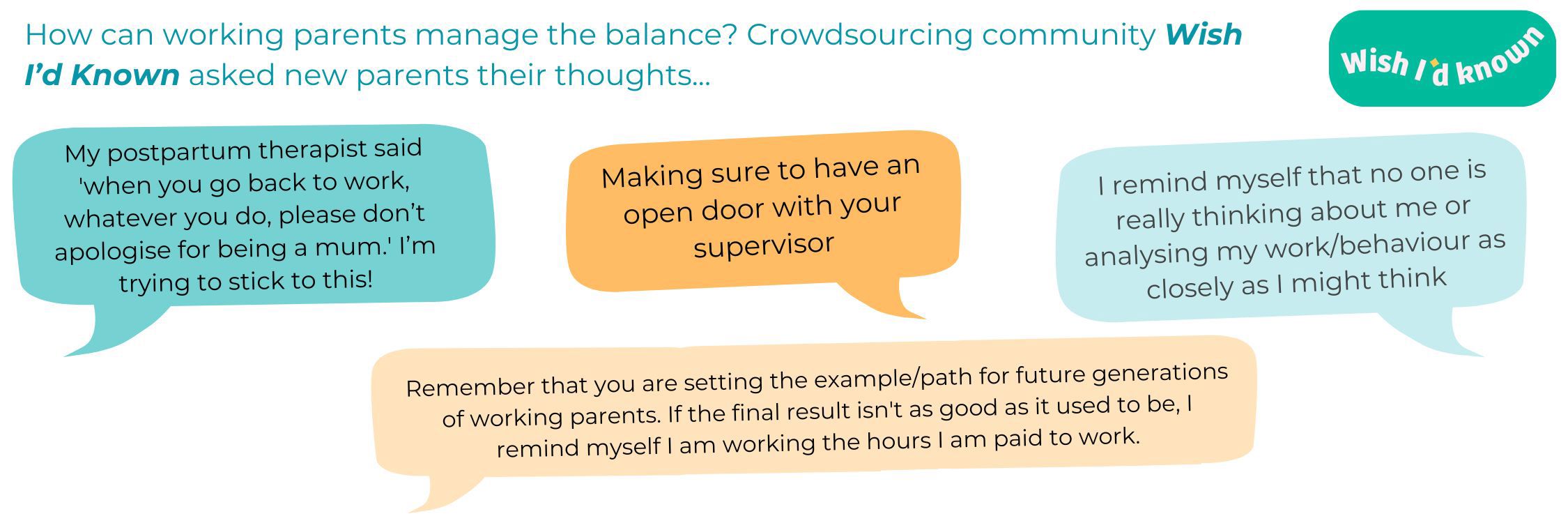
Returning to work after maternity leave is a big transition for any parent. Whether you’re excited, anxious, or a little of both, it’s completely normal to feel overwhelmed as you adjust to a new routine that balances work with life at home with your baby.
One of the biggest challenges is managing your time between work and home life. You might feel pulled in different directions—trying to keep up with your job responsibilities while also meeting the needs of your baby. It’s important to try and establish a routine as soon as possible that allows you to separate the two, so you can be present for both.
Setting clear boundaries for work hours and home time can help. For example, if you’re working from home, create a designated workspace and stick to a start and finish time where you close your work laptop. This not only helps with focus but also ensures you can switch off and be fully there for your baby after the workday ends.
Many parents also struggle with guilt during this transition—feeling like they’re missing out on time with their baby or not giving their best at work. This is completely normal, but it’s important to remember that you’re doing your best, and it’s okay to lean on your support system.
If possible, talk to your manager or HR about flexible working hours or staggered days to help ease the transition. Some parents find that a gradual return to work—starting part-time or working from home for a few days a week—makes it easier to settle into a new routine.
It’s also important to give yourself grace throughout this time. You and your baby are both adjusting, so it’s natural that things might feel a little chaotic at first. Over time, you’ll find what works best for you, whether that’s syncing your schedule with your baby’s naps, or using childcare to create focused work hours.
Don’t hesitate to ask for help when you need it, and remember that your routine will evolve as you and your family grow. You’ve navigated maternity leave so well, and this next step is just the next stage of your life together as a family.
Parenthood is an emotional rollercoaster, and it’s completely normal to feel a wide range of emotions. While some days will be filled with joy and excitement, others might bring stress, anxiety, or even sadness. If you’re feeling overwhelmed, it’s important to know that you’re not alone—many new and expecting parents face similar challenges.
Understanding some of the common mental health concerns that can pop up during pregnancy and the early months of parenthood can help you recognise when to reach out for support. In this section, we’ll explore common concerns like anxiety, depression, and birth trauma, and how you can find the help you need.Read More: Am I suffering From Birth Trauma?
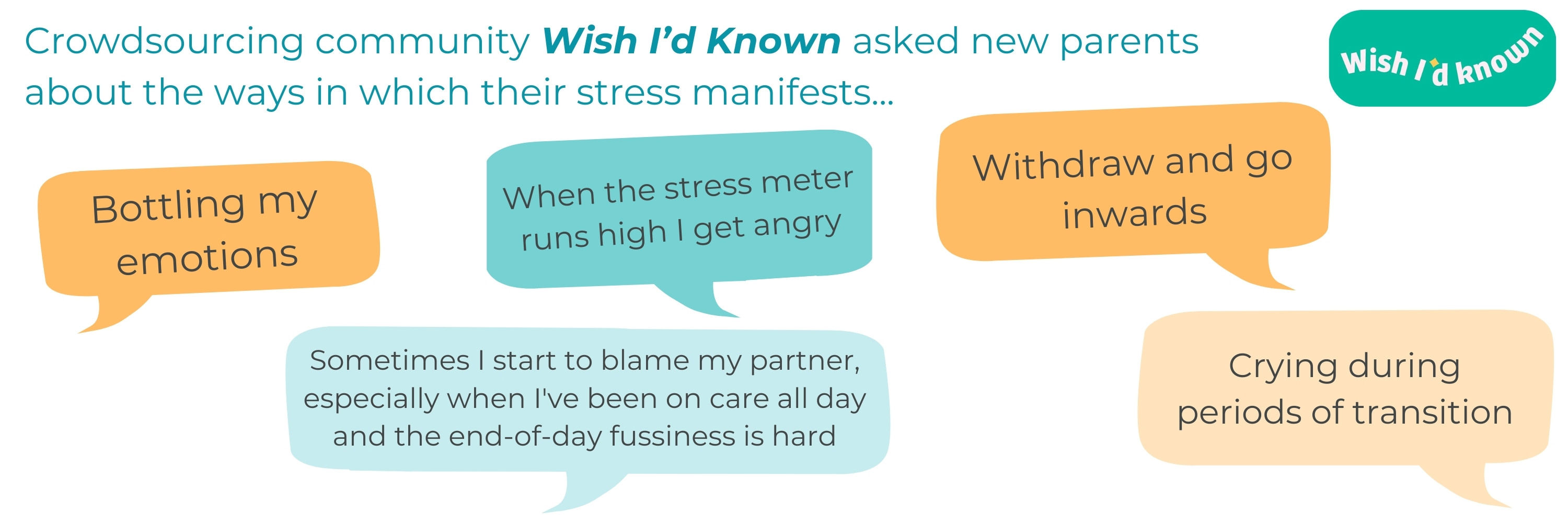
Feeling a bit anxious as a new or expecting parent is pretty normal—there’s a lot to think about and a lot of new responsibilities to juggle! However, if your worries start to take over and you’re constantly on edge, struggling to relax, or feeling overwhelmed by fears (especially around your baby’s safety), it might be a sign of perinatal anxiety.
Read More: Perinatal Anxiety: Signs and Symptoms
Anxiety can show up in lots of different ways, like racing thoughts, trouble sleeping, or even physical symptoms like a racing heart. It’s important to speak to your GP or health visitor if anxiety is making it hard for you to enjoy parenthood. Don't hesitate to reach out—there’s plenty of support available, and you deserve to feel calm and confident during this exciting time.It’s normal to experience a range of emotions during pregnancy and after giving birth, but if you’re feeling persistently low, tearful, or disconnected from your baby, it might be more than just the "baby blues." Prenatal depression and postnatal depression are two separate concerns that many parents experience, and recognising the signs early on can help you get the support you need.
Symptoms can include feeling hopeless, losing interest in things you once enjoyed, or feeling unable to bond with your baby, but it can look different for everyone. The good news is, there are plenty of ways to manage this and get the help you need.
Don’t suffer in silence—reach out to your GP or health visitor for advice. There’s no shame in asking for help, and taking care of your mental health is key to being the best parent you can be.
For some new parents, anxiety takes the form of obsessive thoughts or compulsive behaviours—this is known as perinatal OCD. You might find yourself stuck in a cycle of intrusive thoughts, like worrying constantly about your baby’s safety, even when there’s no real danger. This can lead to repetitive actions, like checking on your baby again and again, in an attempt to ease the anxiety.
If this sounds familiar, you’re not alone. Perinatal OCD can be really distressing, but it is treatable. The NHS recommends seeking help if these thoughts and behaviours are affecting your daily life or your bond with your baby. With the right support, you can break free from the cycle of worry and enjoy your time with your baby more fully.
Read More: Understanding Postnatal OCD
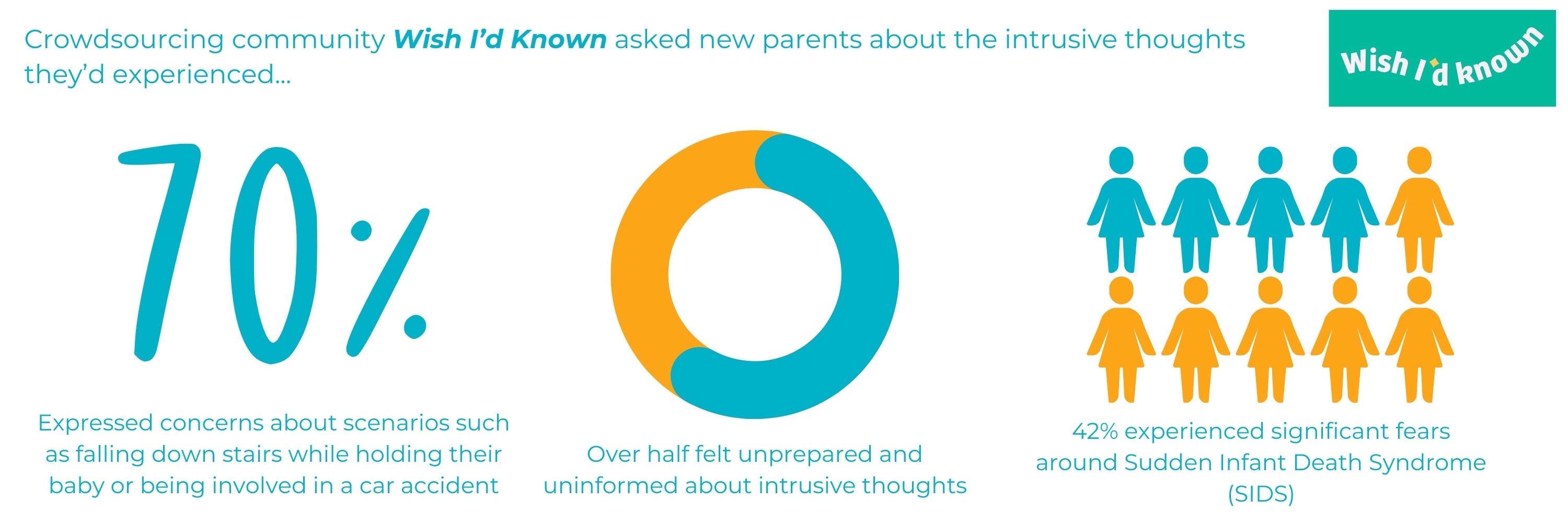
Tokophobia is an intense fear of pregnancy and childbirth, and for some women, this fear can be overwhelming enough to cause serious distress. Whether it’s the fear of the physical pain of childbirth, worries about potential complications, or a deep anxiety about the process of pregnancy itself, tokophobia can affect both women who have never been pregnant and those who have experienced a difficult or traumatic birth in the past.
This condition is more common than you might think, and it’s important to know that you're not alone if you're feeling this way. Some women with tokophobia might avoid becoming pregnant altogether, while others may experience extreme anxiety during pregnancy.
Tokophobia is a real and valid condition, and it’s important to address your fears early so that you can receive the support and reassurance you need to make decisions that feel right for you. Whether you’re planning for a future pregnancy or already expecting, seeking help is a positive step towards feeling more in control and confident about the process.
Though rare, some new parents may experience a serious mental health condition called postpartum psychosis. This usually develops in the first few weeks after giving birth and can cause extreme mood swings, hallucinations, and delusions. You might feel unusually energetic, elated, or, on the flip side, deeply confused or paranoid.
Read More: What is Postpartum Psychosis?
These symptoms are much more intense than the “baby blues” or even postnatal depression, and postpartum psychosis is considered a medical emergency.
If you or someone close to you notices these symptoms, it’s really important to seek immediate help. The NHS offers specialist treatment, often involving a combination of medication and hospital support, to ensure you and your baby are safe.
The good news is, with the right treatment, most people recover fully from postpartum psychosis. If you’re worried about any of these symptoms, trust your instincts and reach out to your GP or a healthcare professional as soon as possible.
The experience of giving birth doesn’t always go as expected, no matter how much time and thought you put into how you’d like it to go. For some parents, a difficult or traumatic birth can lead to lasting emotional effects.
Read More: Birth Trauma - Signs and Symptoms
If you’re struggling with flashbacks, nightmares, or intense anxiety following a difficult birth, you might be dealing with birth trauma or even post-traumatic stress disorder (PTSD). This can happen after an emergency C-section, a difficult labour, or complications during delivery that left you feeling frightened or powerless.
It’s important to know that if you’ve experienced a traumatic birth, it’s not your fault, and help is available. The NHS offers treatments like talking therapies, which can help you process what happened and begin to heal.
Read More: Postnatal PTSD: What Is It and How Can I Get Help?
It can also be really helpful to talk through your birth story with a midwife or healthcare professional who can offer reassurance and guidance. Remember, your feelings are valid, and it’s okay to seek help if you’re struggling to move past your birth experience.
While we often hear about postnatal depression or anxiety, not everyone is aware that some new parents can experience sudden, intense feelings of anger—often referred to as postnatal rage. You might find yourself feeling irritable or angry over seemingly small things, and then feel guilty or confused afterwards. These feelings can catch you off guard, especially when parent life is often portrayed as being all about joy and calm.
Postnatal rage is often linked to hormonal changes, sleep deprivation, and the stress of caring for a newborn. If you’re feeling this way, you’re not alone, and it doesn’t make you a bad parent in any way. Talking to a healthcare professional, like your GP or health visitor, can be a great first step in managing these emotions. Therapy or joining a support group can also help you work through any unresolved feelings. The key is to be kind to yourself and seek support early—anger is a valid emotion, but it shouldn’t take over your experience of parenthood.It’s not just mums who can face mental health challenges during pregnancy and after a baby is born—dads and partners can struggle too. Becoming a parent is a massive life change, and it’s normal for dads to feel stressed, anxious, or overwhelmed. In fact, studies show that around 1 in 10 new dads experience postnatal depression. Men might also experience anxiety, panic attacks, or feel disconnected from their partner and baby, especially as they adjust to new roles and responsibilities.
Mental health struggles in dads can sometimes go unnoticed, as they might feel pressure to "stay strong" or not talk about their feelings. But it’s really important for dads to recognise that they deserve support too.
The NHS offers plenty of resources, including talking therapies and support groups, specifically for dads. Opening up to a partner, friend, or healthcare professional can make a huge difference. Parenthood is a team effort, and both parents’ mental health is vital for a happy, healthy family.
Read More: Can Dads Get Postnatal Depression?
With so many changes, it can be tough to know when your feelings are just part of the adjustment or when they might signal something more serious. That’s why understanding the signs and symptoms of perinatal mental health concerns is so important.
Being aware of what to look out for can help you or someone close to you get the right support, faster.
If your birth experience was tough or didn’t go as planned, you might feel shaken or distressed, and that’s totally understandable. But when those feelings start to interfere with your daily life, you could be experiencing birth trauma or post-traumatic stress disorder (PTSD).
Read More: Postnatal PTSD: What Is It and How Can I Get Help?
Common symptoms include reliving the birth through flashbacks or nightmares, feeling detached from reality, avoiding reminders of the birth, and even struggling to bond with your baby.
If this sounds familiar, it’s important to seek help. The key thing is to remember you’re not alone, and there’s support available to help you recover and enjoy your time with your baby.
Read More: Am I suffering From Birth Trauma?
A little bit of worry is completely normal for new and expecting parents, but when those anxious feelings start taking over, it’s time to take action. Anxiety might show up as constant worrying about your baby’s safety, racing thoughts, or even physical symptoms like a racing heart or trouble sleeping. You might find yourself feeling restless, easily overwhelmed, or unable to switch off, even when you’re exhausted.
Read More: Perinatal Anxiety: Signs and Symptoms
If this sounds familiar, don’t wait to get help. The NHS offers great options for managing anxiety, including talking therapies like CBT and mindfulness techniques to help calm your mind. Simple breathing exercises can also make a world of difference when you’re feeling on edge.
Parenthood is a rollercoaster, and it’s normal to feel up and down. But if you’re feeling persistently low, exhausted, or disconnected from your baby, it could be more than just the usual ups and downs. Depression can leave you feeling hopeless, drained of energy, and struggling to keep up with daily tasks. Changes in sleep and appetite, as well as difficulty bonding with your baby, are also common signs.
Read More: Depression During Pregnancy: Signs of Prenatal Depression
If you’re feeling this way, know that you don’t have to keep it to yourself. There are different types of talking therapies and other support to help you start feeling better. It’s important to reach out early—there’s no shame in getting the help you need to enjoy this special time with your baby.
Read More: How to Identify Postnatal Depression
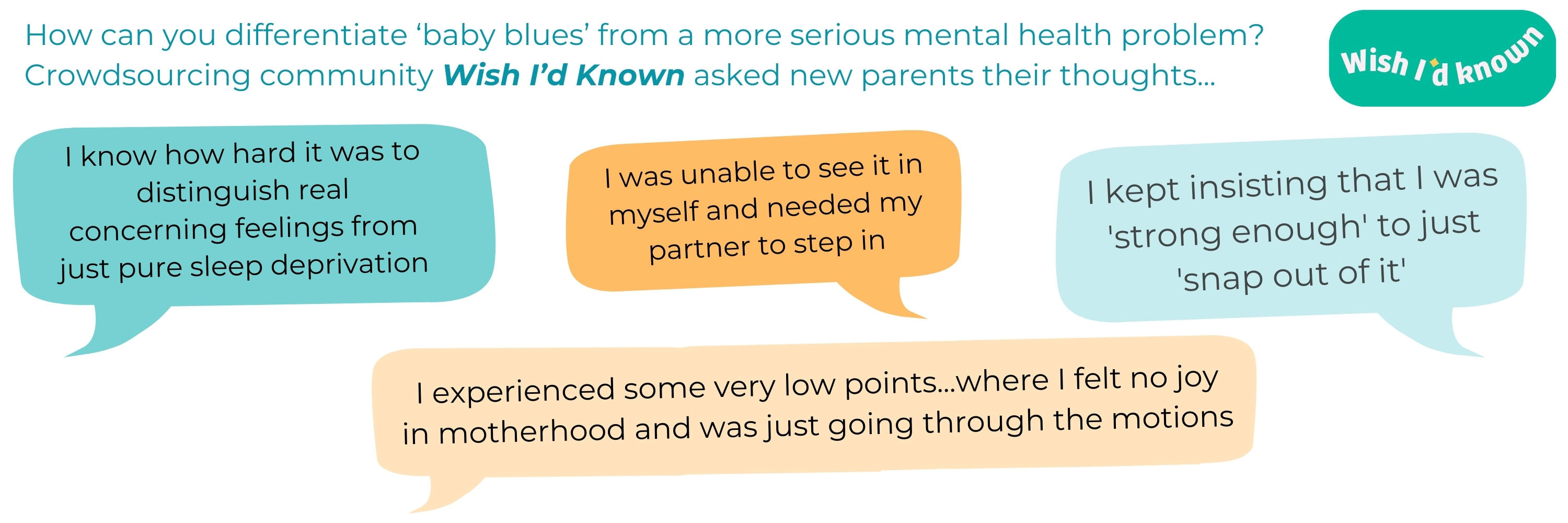
While perinatal mental health issues can affect anyone, certain factors might make you more likely to experience them.
If you’re at higher risk, it’s a good idea to talk to your healthcare provider early on. They can help you access support to keep things on track before symptoms get worse. By being proactive, you can set yourself up for a smoother experience with fewer bumps along the way.
Read More: Risk Factors for Perinatal Mental Health
Some signs of perinatal mental health issues aren’t always obvious, and it’s easy to brush them off as part of the new-parent experience. Irritability, anger, or feeling disconnected from your baby are often overlooked but can be just as serious as feelings of sadness or worry. Some parents feel emotionally numb or like they’re going through the motions without really feeling engaged.
If something feels “off” in any way, don’t ignore it. Even if your symptoms don’t fit the usual picture of anxiety or depression, it’s important to talk to someone—whether it’s a friend, family member, or healthcare professional. Trust your gut and reach out if things don’t feel right.
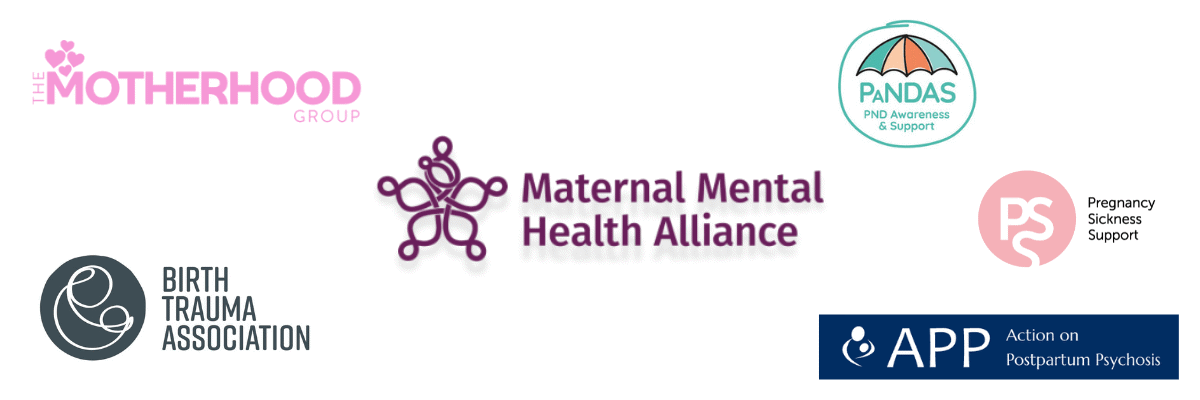
When you’re dealing with mental health struggles during pregnancy or after having a baby, it can feel overwhelming trying to figure out where to turn. The good news is, there are lots of resources out there ready to help—whether you need professional medical advice, a friendly chat with someone who’s been there, or local support options to make life a bit easier.
If you’re finding things tough, the first step is to chat with your GP, midwife, or health visitor. They’re there to support you, and they can help you access NHS services designed specifically for new and expecting parents struggling with their mental health. This might include talking therapies like CBT or medication if it’s needed. The important thing is to reach out sooner rather than later—getting help early can make a big difference.
Don’t be afraid to speak up about how you’re feeling. Your GP can refer you to perinatal mental health teams who are experts in supporting parents through conditions like anxiety, depression, or birth trauma. You deserve to feel supported, and the NHS is here to help you every step of the way.There are also lots of UK-based charities that offer incredible support for new parents facing mental health challenges. Organisations like Maternal Mental Health Alliance have lots of online resources and support groups designed to help you navigate this tricky time. Whether you’re looking for advice, someone to talk to, or just reassurance that you’re not alone, these charities are there for you.
If you’ve experienced birth trauma, the Birth Trauma Association is a fantastic resource, while PANDAS specialises in postnatal depression support. Many charities offer online services, which means you can access help from the comfort of your home, whenever you need it.
The Motherhood Group does amazing work in bridging the gap between the community & the system, to empower Black mums. They are dedicated to sharing and supporting the black maternal experience.
If you or a loved one has experienced postpartum psychosis, Action on Postpartum Psychosis is an amazing charity. They focus on supporting and advocating for mums and families affected by postpartum psychosis, as well as offering award-winning peer support, information and signposting to help you and your family now and in the future.
If illness and sickness is impacting your mental health, whether through morning sickness, Hyperemesis Gravidarum, or other illness, Pregnancy Sickness Support is an amazing resource. They offer a variety of different support services for those who are struggling, and can provide you with information you need to get the care and treatment you deserve.
Feeling isolated? Local support networks can be a lifeline. Baby groups, antenatal classes, and parent support groups are brilliant ways to connect with other parents who understand what you’re going through. Your health visitor or GP can usually recommend local options, or you can look online for parent groups near you.
Read More: Peer Support Through Pregnancy, Birth and Beyond
'Wish I'd Known is a huge crowdsourced library of parenting experiences, with nearly 1,000 insights on raising young children and parental well-being freely available.
If you’re feeling alone or unsure in your parenting journey, it’s a great place to explore what many other parents have experienced. Over 1 million words and datapoints have been turned into digestible graphs and summaries, making it easy to get a representative and diverse view on all sorts of topics.
It can be hard to open up to those closest to you, but talking to family and friends about your mental health can be a huge relief. Whether it’s sharing how you’re feeling or asking for practical help, your loved ones are often more than happy to support you—they just might not know how unless you tell them.
Let them know what you need, whether it’s a bit of help with the baby, someone to listen, or even just some time to yourself. Remember, there’s no shame in asking for help—raising a baby is a team effort, and your mental health matters just as much as your baby’s wellbeing.
Read More: Tips for Looking After Your Partner's Mental Health After Giving Birth
Sometimes, getting the right help means pushing a little harder for what you need. If you feel like your concerns aren’t being taken seriously or you’re not getting the support you deserve, don’t hesitate to speak up. It’s important to trust your instincts—if something doesn’t feel right, ask for a second opinion or seek further support.
Knowing your rights and understanding what’s available to you can make it easier to advocate for yourself. If you’re unsure where to start, charities like Birthrights and Mind offer advice on how to navigate the healthcare system and make sure your voice is heard. You know yourself best, and you deserve to feel supported throughout your parenting journey.
When it comes to perinatal mental health, the statistics can be eye-opening, but it’s the real stories behind those numbers that truly bring these issues to life. Every mum’s journey is unique, and hearing directly from those who’ve walked the path of postnatal anxiety, depression, or other mental health challenges helps break down the stigma and offer a sense of comfort to those experiencing the same struggles. These personal experiences give a voice to the feelings, fears, and triumphs that so many parents face but often feel too afraid to speak about.
By sharing real voices, we can open the door to a deeper understanding, empathy, and support. These stories remind us that no one is alone in this journey, and help is out there. Whether it’s through professional care, community support, or just knowing that someone else has been where you are, these experiences can reassure parents that things can get better.
At Your Baby Club, we understand that mental health during pregnancy and early parenthood can be complex and challenging. To shine a light on the realities that many parents face, we teamed up with the crowdsourcing community, Wish I’d Known, to gather insights from parents of babies and toddlers aged 0-3 years.
Their shared experiences provide valuable advice and insight into the mental health challenges new parents encounter and how they cope. Here are some of the key themes that emerged.
One of the most common reflections from parents was the difference between the "baby blues" and more serious mental health conditions, such as postnatal depression or anxiety. While the baby blues usually pass within a couple of weeks, conditions like postnatal depression tend to linger for parents, affecting daily life.
One parent highlighted, "baby blues feel less consistent, but a more serious issue would feel more debilitating." Many agreed that when feelings of sadness, anxiety, or disconnection don’t ease, it’s time to seek help.
Despite recognising the signs of mental health struggles, many parents expressed uncertainty about how to distinguish between what’s normal and what might indicate a more serious problem. One parent shared, "Even as a counsellor, I struggled to determine how much of what I was experiencing was normal."
This uncertainty highlights the need for more education and support around perinatal mental health, with another parent adding that sleep deprivation and post-birth recovery made it even harder to identify the issue.
Personal experiences played a big role in shaping how parents understood their mental health. Many admitted it took time for them to accept the severity of their symptoms and reach out for help. One parent reflected, "I kept insisting I was 'strong enough' to snap out of it, but it was only when I finally took medication that things improved." This shows the importance of trusting yourself and seeking support earlier, or when a loved one raises concerns, rather than waiting for symptoms to resolve on their own.
Mental health challenges can significantly affect a parent’s ability to function day-to-day. From maintaining personal hygiene to managing household tasks, many parents shared how these struggles left them feeling disconnected and unable to enjoy motherhood. "I felt like I was just going through the motions," said one parent.
This feeling of detachment extended to relationships as well, with others noting how difficult it was to maintain a sense of normality in their partnerships while navigating postpartum mental health.
Reaching out for help, whether from healthcare professionals, family, or friends, was a recurring theme. One parent explained how her partner had to step in when she couldn’t recognise her own need for support. However, not everyone found the help they needed straight away. Some parents reported that medical professionals didn't always take their concerns seriously, with one parent noting that her symptoms were brushed off as normal post-birth struggles. These stories underscore the importance of advocacy and the need for better recognition of parental mental health issues within healthcare systems.
These shared experiences reflect the importance of open conversations about mental health, knowing when to seek support, and understanding that you are never alone in this journey. Many parents find relief and healing through a combination of professional help, lifestyle adjustments, and leaning on their support systems. Through communities like Wish I’d Known, parents are helping one another by sharing their real stories and showing that it’s okay to ask for help.
Becoming a new mum can be an emotional whirlwind, and while it’s common to feel worried from time to time, postnatal anxiety is a more intense and persistent kind of worry. It can cause constant fear and unease about your baby’s safety, your abilities as a parent, or even day-to-day tasks. Recognising and seeking help for postnatal anxiety is a crucial step towards feeling like yourself again.
Mum Lynette experienced postnatal anxiety after the birth of her son, finding herself overwhelmed with feelings that she lost her identity. She describes how her worries affected her ability to enjoy motherhood, and how important it is to get the support you need as soon as possible.
To read Lynette’s full story, click here to visit her blog on the Maternal Mental Health Alliance website.
Perinatal Obsessive-Compulsive Disorder (OCD) is a type of anxiety that involves obsessive, distressing thoughts and compulsive behaviours, often related to the safety of your baby. This can leave new parents feeling isolated and consumed by irrational fears, but with the right support, recovery is possible.
Kirsten’s experience with perinatal OCD began during her pregnancy. She spoke to 11 different professionals before I started to receive help. Despite feeling confused, Kirsten finally got the help she needed after her little one was born, when she met a perinatal mental health nurse.
To read Kirsten’s full story, click here to visit her blog on the Maternal Mental Health Alliance website.
Postnatal depression is more than just feeling low after giving birth. It can affect a new mum’s ability to bond with her baby, experience joy, and handle the day-to-day tasks of parenthood. It’s important to recognise the symptoms early and seek support to begin the path to recovery.
Eleanor's journey through postnatal depression led her to A&E at her low point. She battled intrusive thoughts, which led her to seek help through a regular home treatment team.
To read Eleanor’s full story, click here to visit her blog on the Maternal Mental Health Alliance website.
Postpartum psychosis is a rare but serious mental health condition that can cause extreme mood changes, hallucinations, and delusions. It usually develops in the first few weeks after giving birth and requires immediate medical attention. However, with the right care, recovery is possible.
Charlotte experienced postpartum psychosis shortly after the birth of her son, which left her suffering from hallucinations and paranoia. She describes how her condition escalated quickly, leading to around 18 months of treatment.
To read Charlotte's full story, click here to visit her blog on the Maternal Mental Health Alliance website.
After the birth of her first child, Sapna became very anxious and didn’t want to be left alone with him. She was lucky to receive amazing treatment, but recognises that the postcode lottery for treatment means not everyone gets this opportunity.
To read Sapna’s full story, click here to visit her blog on the Maternal Mental Health Alliance website.
When helping his wife through her struggled with postnatal mental health, Raj found that there was a lack of information and support available for fathers or partners.
To read Raj’s full story, click here to visit her blog on the Maternal Mental Health Alliance website.
Dani suffered eclamptic seizure during her birth, and she started to have flashbacks and recurring dreams about the seizure.
She went through a long treatment journey with a perinatal psychologist, which meant she knew where to turn when she had another traumatic experience during the birth of my third child.
To read Dani’s full story, click here to visit her blog on the Maternal Mental Health Alliance website.
The information on the Your Baby Club website is not intended to be a substitute for professional medical advice, diagnosis or treatment. Always discuss any health concerns with a qualified healthcare provider and carefully review all guidance that comes with any medications or supplements before taking.


